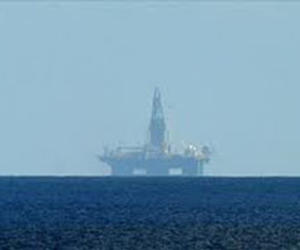Cuba explores for oil as U.S. watches
- Submitted by: manso
- Politics and Government
- 04 / 18 / 2011

By Lesley Clark.MiamiHerald.com.Posted on Sun, Apr. 17, 2011. Less than 75 miles off the Florida Keys, Cuba’s plan to explore for oil and gas in waters even deeper than BP’s Deepwater Horizon well has U.S. officials on alert.
U.S. Interior Secretary Ken Salazar acknowledged this past week that Cuba’s oil and gas explorations are an “issue of concern.’’
“We’re watching it closely,” Salazar said. “Obviously, because it’s located 60 miles off the coast of Florida… it’s an issue that we’re monitoring carefully."
Cuba is eager to explore for energy off its coast near Havana. The Spanish energy giant Repsol, which drilled an exploratory well in 2004, is expected to drill another five to seven such wells as soon as this fall, said Jorge Piñon, an energy expert and visiting research fellow at the Cuban Research Institute at Florida International University.
Piñon, who attended an oil and gas conference in Havana last week, said the Cuban government is cognizant of its tourism-dependent economy and “is reviewing everything it can from the Deepwater Horizon.” But he acknowledged the country doesn’t have the assets to respond to a spill like the one in the Gulf of Mexico.
“Houston is 900 miles from where the well is going to be deployed and equipment could be there in a matter of hours, but it won’t available because we haven’t sat down with Cuba,” Piñon said.
The Unite States and Mexico — which share the Gulf of Mexico with Cuba — have been meeting to strengthen standards for drilling in the Gulf, but Cuba hasn’t been part of the talks.
The U.S. Bureau of Ocean Energy Management, Regulation and Enforcement has talked with Repsol about its plans in Cuba, but agency director Michael Bromwich says there’s no agreement on a drilling standard. He acknowledged U.S-Cuba policy makes direct talks difficult.
The presidential commission that investigated last year’s BP spill recommended that Cuba and the United States. talk about oil drilling.
A spokesman for the State Department says it hasn’t held any discussions with the Cuban government on oil exploration. "However, we expect any company operating in Cuba’s oil and gas sector to adhere to industry environmental, health, and safety standards and have adequate prevention, mitigation, and remediation systems in place in the event of an incident," spokesman Charles Luoma-Overstreet said. "We will pursue activities within our legal authority in order to minimize risk to U.S. territory."
Critics of further engagement with Cuba argue that Cuba has proposed offshore drilling for more than a decade without delivering.
“We’ve seen this dog-and-pony show for 10 years and the fact remains, there’s no drilling,” said Mauricio Claver-Carone, director of a leading pro-embargo lobby, the U.S. Cuba Democracy political action committee. The embargo has already affected Cuba’s operations: It had to secure a rig that didn’t violate the U.S.law that prevents vessels with more than 10 percent of U.S. parts from operating in Cuba.
Claver-Carone suggested that if the rig — now in Singapore — approaches Cuba, there’d be time for Congress to make it even more difficult and expensive for Repsol to proceed. Florida lawmakers have already filed legislation aiming to block Cuba by making it more difficult for foreign oil companies to do business there.
Source: //www.miamiherald.com/2011/04/16/v-print/2171421/
Comments